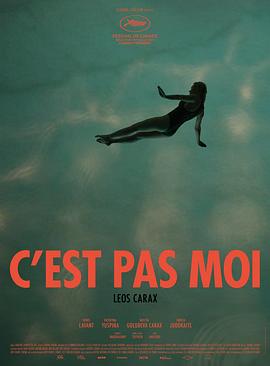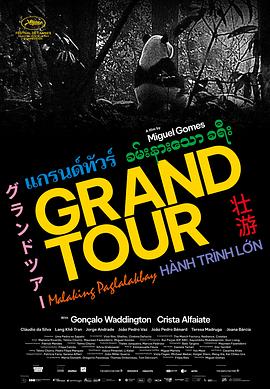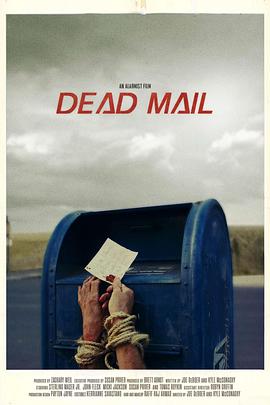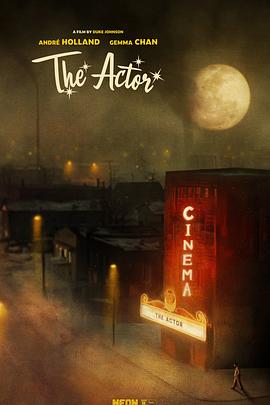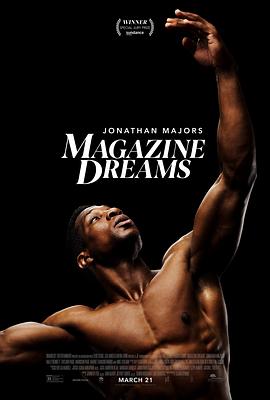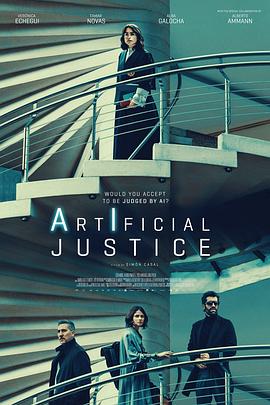- 超清线路
猜你喜欢
2024
8.0分
剧情片
莱奥·卡拉克斯 德尼·拉旺 娜斯提亚·戈卢别娃·卡拉克斯 洛雷塔·茱德凯特 安娜-伊莎贝尔·塞弗肯 皮特·安奈夫斯基 比安卡·迈达鲁诺 让-弗朗索瓦·巴尔梅 朱丽叶·比诺什 吉约姆·德帕迪约 亚当·德赖弗 叶卡捷琳娜·戈卢别娃 卡特琳娜·尤斯皮娜 米歇尔·皮科利 奥克萨娜·莎秋
/
为了一场未发生的展览,法国庞毕度中心向李欧卡霍抛出大哉问,请他用图像响应自己。向来不按牌理出牌的卡霍再度出人意表,亲自粉墨登场,以磁性画外音细述,并亲上剪辑台,透过隽永老歌、耸动字卡、怀旧相片,以及家庭录象、纪录档案与电影片段,让图像彼此撞击产生新意,不论政治、历史、个人与影史皆揉合为一,一部半自传基调的「卡霍式」散文电影于焉问世。
HD中字
2024
1.0分
剧情片
贡萨洛·沃丁顿 克里斯塔·法亚特 Cláudio da Silva 陈浪溪 Jorge Andrade 约翰·佩德罗·瓦斯 João Pedro Bénard 特丽莎·马德鲁加 Joana Bárcia 曼努埃拉·库托 迪奥哥·多瑞亚 Giacomo Leone André Lourido 阿梅瑞科·席尔娃 赵嘉妮
/
二十世纪初,大英帝国殖民官员爱德华被派驻遥远的东方,他从仰光搭火车前往曼德勒,等待未婚妻莫莉搭船到来。孰料蒸汽船即将靠岸之际,他却丢失了勇气,跳上前往新加坡的船仓皇离去。即便如此,爱德华的懦弱之举,并未让莫莉却步,反倒上演一场你跑我追之旅,也借着横渡暹罗、西贡、马尼拉、大阪、上海、重庆、成都,在陌生的远东大陆上,展开一连串的探索与追寻。
HD中字
2024
4.0分
剧情片
小斯特林·马塞尔 约翰·弗利克 Tomas Boykin 苏珊·普里弗 Micki Jackson 尼克·海曼 Sean Heyman Aaron Phifer Brian Burke Micah Fitzgerald 沙里夫·沃尔特斯 David Willis Joseph Lopez Josh Harp Shelby Sulak Alyssa Brayboy Robin D. Stanton
/
一份不祥的求助信被传到了20世纪80年代的一家邮局里,将一名死信调查员与一名被绑架的键盘技术员联系起来。
HD中字
2024
3.0分
剧情片
米娅·塔里亚 Pascale Kann 拉卡·塔克雷尔 Cal O'Driscoll Barry John Kinsella 尼亚姆·莫里亚蒂 肖恩·康奈兰 Amelia Valentina Pankhania
/
故事讲述两个关系并不好的姐妹,改编自黛西·约翰逊2021年出版的同名小说
HD中字
2024
10.0分
剧情片
This film tells the story of a husband's undying love for his wife and son, who goes to great lengths to correct his past for a better future.
HD中字
2024
8.0分
剧情片
1939年,希特勒的军队关闭了边境,85名美国传教士在德国为他们的教会服务。这些传教士逃离纳粹德国是现代摩门教历史上发生的最戏剧性的事件之一。
HD中字
2025
8.0分
剧情片
HD中字
2024
8.0分
剧情片
HD中字
2025
4.0分
剧情片
HD中字
2023
1.0分
剧情片
乔纳森·梅杰斯 哈里森·佩吉 哈里特·桑塞姆·哈里斯 海莉·贝内特 迈克尔·奥赫恩 泰勒·佩姬 布拉德利·斯泰克尔 克雷格·卡科夫斯基 桑尼·瓦利森蒂 Justin Cuomo Peter Ivanov 马克·史密斯 Kimberly Christian 戴恩·多诺休 Jodi Bianca Wise Andrea Figliomeni Alfretz Costelo 蒂姆·马丁·格里森 Ezra
/
聚焦有抱负的健美运动员基利安·马多克斯,他在探索名声和暴力的过程中努力寻求人际关系,没有什么能阻止他成为超级巨星的梦想,即使被医生警告:他的追求将对身体造成永久性伤害。
HD中字
《关于在短时间内的某几个人的经过》剧情介绍
久久影视网提供影视作品关于在短时间内的某几个人的经过高清全集在线观看的影视全集网,剧情片《关于在短时间内的某几个人的经过》全集作品的导演是居伊·德波 ,由内详 主演,关于在短时间内的某几个人的经过在豆瓣的评分为3.0,本片由小编于2025-02-01 18:11更新,希望大家喜欢,可以把《关于在短时间内的某几个人的经过》推荐给你朋友,本作品的地址为 https://www.3hl.net/3hl/index/28631.html
《关于在短时间内的某几个人的经过》简介: Voice 1 (male "professional announcer" type): This neighborhood(1) was made for the wretched dignity of the petty bourgeoisie, for respectable occupations and intellectual tourism. The sedentary population of the upper floors was sheltered from the influences of the street. This neighborhood has remained the same. It was the strange setting of our story, where a systematic questioning of all the diversions and works of a society, a total critique of its idea of happiness, was expressed in acts. These people also scorned "subjective profundity". They were interested in nothing but an adequate and concrete expression of themselves. Voice 2 (Debord, monotone): Human beings are not fully conscious of their real life - usually groping in the dark; overwhelmed by the consequences of their acts; at every moment groups and individuals find themselves confronted with results they have not wished. Voice 1: They said that oblivion was their ruling passion. They wanted to reinvent everything each day; to become the masters and possessors of their own lives. Just as one does not judge a man according to the conception he has of himself, one cannot judge such periods of transition according to their own consciousness; on the contrary, one must explain the consciousness through the contradictions of material life, through the conflict between social conditions and the forces of social production. The progress achieved in the domination of nature was not yet matched by a corresponding liberation of everyday life. Youth passed away among the various controls of resignation. Our camera has captured for you a few aspects of a provisional microsociety. The knowledge of empirical facts remains abstract and superficial as long as it is not concretized by its integration into the whole "” which alone permits the supersession of partial and abstract problems so as to arrive at their concrete essence, and implicitly at their meaning. This group was on the margins of the economy. It tended toward a role of pure consumption, and first of all the free consumption of its time. It thus found itself directly engaged in qualitative variations of everyday life but deprived of any means to intervene in them. The group ranged over a very small area. The same times brought them back to the same places. No one went to bed early. Discussion on the meaning of all this continued... Voice 2: "Our life is a journey "” In the winter and the night. "” We seek our passage..."� Voice 1: The abandoned literature nevertheless exerted a delaying action on new affective formulations. Voice 2: There was the fatigue and the cold of the morning in this much-traversed labyrinth, like an enigma that we had to resolve. It was a looking-glass reality through which we had to discover the potential richness of reality. On the bank of the river evening began once again; and caresses; and the importance of a world without importance. Just as the eyes have a blurred vision of many things and can see only one clearly, so the will can strive only incompletely toward diverse objects and can completely love only one at a time. Voice 3 (young girl): No one counted on the future. It would never be possible to be together later, or anywhere else. There would never be a greater freedom. Voice 1: The refusal of time and of growing old automatically limited encounters in this narrow, contingent zone, where what was lacking was felt as irreparable. The extreme precariousness of the means of getting by without working was at the root of this impatience which made excesses necessary and breaks definitive. Voice 2: One never really contests an organization of existence without contesting all of that organization's forms of language. Voice 1: When freedom is practiced in a closed circle, it fades into a dream, becomes a mere representation of itself. The ambiance of play is by nature unstable. At any moment "ordinary life"� can prevail once again. The geographical limitation of play is even more striking than its temporal limitation. Any game takes place within the contours of its spatial domain. Around the neighborhood, around its fleeting and threatened immobility, stretched a half-known city where people met only by chance, losing their way forever. The girls who found their way there, because they were legally under the control of their families until the age of eighteen, were often recaptured by the defenders of that detestable institution. They were generally confined under the guard of those creatures who among all the bad products of a bad society are the most ugly and repugnant: nuns. What usually makes documentaries so easy to understand is the arbitrary limitation of their subject matter. They describe the atomization of social functions and the isolation of their products. One can, in contrast, envisage the entire complexity of a moment which is not resolved into a work, a moment whose movement indissolubly contains facts and values and whose meaning does not yet appear. The subject matter of the documentary would then be this confused totality. Voice 2: The era had arrived at a level of knowledge and technical means that made possible, and increasingly necessary, a direct construction of all aspects of a liberated affective and practical existence. The appearance of these superior means of action, still unused because of the delays in the project of liquidating the commodity economy, had already condemned aesthetic activity, whose ambitions and powers were both outdated. The decay of art and of all the values of former mores had formed our sociological background. The ruling class's monopoly over the instruments we needed to control in order to realize the collective art of our time had excluded us from a cultural production officially devoted to illustrating and repeating the past. An art film on this generation can only be a film on its absence of real creations. Everyone unthinkingly followed the paths learned once and for all, to their work and their home, to their predictable future. For them duty had already become a habit, and habit a duty. They did not see the deficiency of their city. They thought the deficiency of their life was natural. We wanted to break out of this conditioning, in quest of another use of the urban landscape, in quest of new passions. The atmosphere of a few places gave us intimations of the future powers of an architecture it would be necessary to create to be the support and framework for less mediocre games. We could expect nothing of anything we had not ourselves altered. The urban environment proclaimed the orders and tastes of the ruling society just as violently as the newspapers. It is man who makes the unity of the world, but man has extended himself everywhere. People can see nothing around them that is not their own image; everything speaks to them of themselves. Their very landscape is alive. There were obstacles everywhere. There was a cohesion in the obstacles of all types. They maintained the coherent reign of poverty. Everything being connected, it was necessary to change everything by a unitary struggle, or nothing. It was necessary to link up with the masses, but we were surrounded by sleep. Voice 3: The dictatorship of the proletariat is a desperate struggle, bloody and bloodless, violent and peaceful, military and economic, educational and administrative, against the forces and traditions of the old world. Voice 1: In this country it is once again the men of order who have rebelled. They have reinforced their power. They have been able to aggravate the grotesqueness of the ruling conditions according to their will. They have embellished their system with the funereal ceremonies of the past. Voice 2: Years, like a single instant prolonged to this point, come to an end. Voice 1: What was directly lived reappears frozen in the distance, fit into the tastes and illusions of an era, carried away with it. Voice 2: The appearance of events that we have not made, that others have made against us, now obliges us to be aware of the passage of time, its results, the transformation of our own desires into events. What differentiates the past from the present is precisely its out-of-reach objectivity; there is no more should-be; being is so consumed that it has ceased to exist. The details are already lost in the dust of time. Who was afraid of life, afraid of the night, afraid of being taken, afraid of being kept? Voice 3: What should be abolished continues, and we continue to wear away with it. We are engulfed. We are separated. The years pass and we haven't changed anything. Voice 2: Once again morning in the same streets. Once again the fatigue of so many similarly passed nights. It is a walk that has lasted a long time. Voice 1: Really hard to drink more. Voice 2: Of course one might make a film of it. But even if such a film succeeds in being as fundamentally disconnected and unsatisfying as the reality it deals with, it will never be more than a re-creation "” poor and false like this botched traveling shot. Voice 3: There are now people who pride themselves on being authors of films, as others were authors of novels. They are even more backward than the novelists because they are unaware of the decomposition and exhaustion of individual expression in our time, ignorant of the end of the arts of passivity. They are praised for their sincerity since they dramatize, with more personal depth, the conventions of which their life consists. There is talk of the liberation of the cinema. But what does it matter to us if one more art is liberated through which Tom, Dick or Harry can joyously express their slavish sentiments? The only interesting venture is the liberation of everyday life, not only in the perspectives of history but for us and right away. This entails the withering away of alienated forms of communication. The cinema, too, has to be destroyed. Voice 2: In the final analysis, stars are created by the need we have for them, and not by their talent or lack of talent or even by the film industry or advertising. Miserable need, dismal, anonymous life that would like to expand itself to the dimensions of cinema life. The imaginary life on the screen is the product of this real need. The star is the projection of this need. The images of the advertisements during the intermissions are more suited than any others for evoking an intermission of life. To really describe this era it would no doubt be necessary to show many other things. But what would be the point? Better to grasp the totality of what has been done and what remains to be done than to add more ruins to the old world of the spectacle and of memories. 1. This film, which evokes the lettrist experiences at the origin of the situationist movement, opens with shots of the Paris district frequented by the lettrists in the early 1950s.
